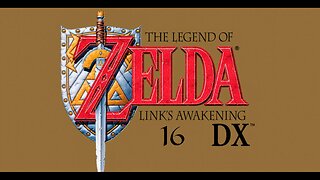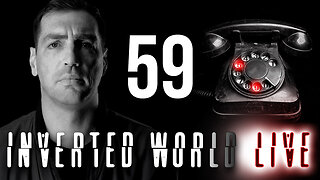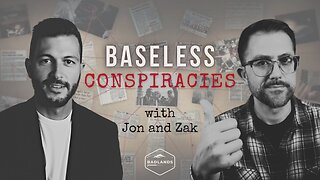Premium Only Content

The Pusher Steppenwolf
The Pusher Album: Steppenwolf (1968)
Don't Step On The Grass, Sam Album: The Second (1968)
by Steppenwolf
The Pusher is about a drug dealer. It is one of the first songs to deal with harsh realities of drug use, and condemns "the pusher" as a heartless criminal who is only after your money.
Hoyt Axton wrote The Pusher after one of his friends died of a drug overdose. Axton struggled with addiction for much of his life and was keen on exposing the dangers, which he did on "The Pusher" and on another song recorded by Steppenwolf: "Snowblind Friend."
Axton had a viable solo career at the time, but when his album My Griffin Is Gone flamed out in 1969, he focused on writing for other artists and landed a #1 when Three Dog Night did "Joy To The World," which Steppenwolf rejected.
In the mid-'60s, "The Pusher" was popularized by a Canadian group called The Sparrows, who played it as a long jam during their concerts. Three members of that group - lead singer John Kay, organist Goldy McJohn, and drummer Jerry Edmonton - formed Steppenwolf in 1967 and recorded a much shorter, more radio-friendly version for their first album, released in 1968.
In an interview with John Kay, he explained how he came across the song. "In the summer of 1964, after having been an East Coast guy in Toronto, and later in Buffalo, New York, I was in Los Angeles," he said. "This was the folk music revival, and I played in little coffeehouses. But the places where the pros played were The Ash Grove - which was where traditional people like Son House performed - and The Troubadour in West Hollywood. I hung out there in order to learn from the pros that played there. I hung out there so much that Doug Weston, the owner of The Troubadour, said, 'I can use you at the box office. I'll pay you a buck an hour.'
But the main reason for me to be there was to learn, and one of the guys that played there regularly was Hoyt Axton. I immediately liked what he played - a bluesy-styled acoustic guitar. And he had a voice that I really liked. He wrote songs that connected, and one of them, of course, was 'The Pusher,' which brought down the house every time he played it.
It's a simple three-chord song, and I learned it. I did not really meet Hoyt at that time, even though I was hanging around, so when I hitchhiked back to the East Coast with my guitar on my shoulder and wound up in Toronto in a coffeehouse, 'The Pusher' had become part of my solo acoustic repertoire and found its way into The Sparrows, which was the Canadian band I joined. So, when The Sparrows eventually migrated from Toronto through New York and to LA and busted up there, from the ashes of that band was formed Steppenwolf."
Along with Steppenwolf's "Born To Be Wild," "The Pusher" was featured in the 1969 movie Easy Rider, starring Peter Fonda and Dennis Hopper. The film is considered a landmark of '60s counterculture, and using this song in the movie was important because it portrayed the downside of doing drugs.
The lyrics certainly "pushed" the limits as to what was acceptable for broadcast in 1968. It was far from the first song to make abundant and obvious drug references, but it was the first major release to include the phrase "God damn," which appears in the line, "God damn the pusher man." The following year, the Grateful Dead included the epithet in their song "Uncle John's Band."
The Second is the second studio album released in October 1968 on ABC Dunhill Records. Track 5, last song on Side one.
The background of the original ABC LP cover was a shiny "foil", in contrast to later (MCA Records) LP issues and the modern CD sleeve.
Steppenwolf
John Kay – lead vocals, rhythm guitar, harmonica
Michael Monarch – lead guitar
Goldy McJohn – organ, piano
Rushton Moreve – bass
Jerry Edmonton – drums, vocals, co-lead vocals on "Don't Step on the Grass, Sam"
-
 3:39
3:39
Psychological operations
3 days agoOphelia The Band
351 -
 27:10
27:10
Sadix2112
14 days agoThe Legend Of Zelda: Link's Awakening DX Episode 16 Dream Warrior
1.46K1 -
 4:20:19
4:20:19
The Pascal Show
16 hours ago $0.07 earnedDIDDY TRIAL LIVE! Assistant Brendan Paul 'DR*G MULE' Testifies! Diddy Trial Day 24
1.06K -
 1:17
1:17
daniellesmithab
3 days agoAlberta Ready to Lead
2.05K1 -
 23:10
23:10
Stephen Gardner
6 hours ago🔥Trump Issues CHILLING WARNING TODAY!
15.8K85 -
 2:31:36
2:31:36
FreshandFit
5 hours agoAfter Hours w/ Jake Shields & Zherka
66.6K81 -
 2:20:30
2:20:30
Inverted World Live
6 hours agoPsyops in Minnesota | Ep.59
66K5 -
 1:40:46
1:40:46
Badlands Media
13 hours agoBaseless Conspiracies Ep. 137: Predictive Programming, Pence’s Role & the Parallel War
66.3K25 -
 2:45:00
2:45:00
TimcastIRL
7 hours agoIRAN WAR: Trump THREATENS Iran To EVACUATE NOW, Mobilizes Military | Timcast IRL
218K129 -
 9:32
9:32
MattMorseTV
14 hours ago $4.93 earnedTrump just DOUBLED DOWN.
43.3K26